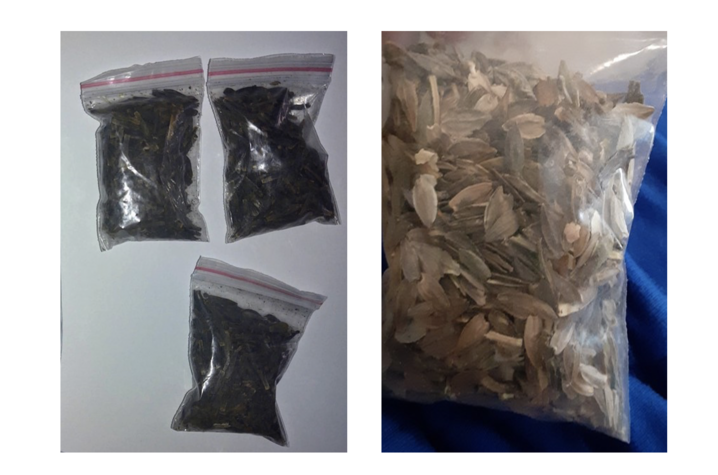Unsolicited Gifts of Seeds Could Pose a Danger

LEXINGTON, Ky. (July 30, 2020) — Recently, the Kentucky Department of Agriculture was notified of several Kentucky residents receiving unsolicited seed packets through the mail. The packets appear to have originated in China. The types of seeds are unknown and may pose a threat to Kentucky agriculture and the environment through the introduction of invasive plants or diseases.
Anyone who receives an unsolicited package of seeds should not plant them or throw them away. Instead, they should immediately contact the Kentucky Department of Agriculture for instructions.
“The purpose of these seed shipments is unclear at this time, but we need to get the message out that it’s important that people not plant them,” said Ric Bessin, extension entomologist in the University of Kentucky College of Agriculture, Food and Environment. “These packets could potentially contain invasive species or plant diseases, so do not throw them in the trash either. Instead, seal them tightly and send them to the U.S. Department of Agriculture’s office in Northern Kentucky.”
Residents of other states have received the seed packets as well. The USDA’s Animal and Plant Health Inspection Service, APHIS, is working closely with the Department of Homeland Security’s Customs and Border Protection, other federal agencies and state departments of agriculture to investigate the situation.
“At this point in time, we don’t have enough information to know if this is a hoax, a prank, an internet scam, or an act of agricultural bio-terrorism,” Kentucky Agriculture Commissioner Ryan Quarles said in a press release issued by his office. “I want to reiterate; do not plant the seeds. We don’t know what they are, and we cannot risk any harm whatsoever to agricultural production in the United States. We have the safest, most abundant food supply in the world, and we need to keep it that way.”
Individuals who have received the suspicious packages should put them in an airtight bag and ship them and the packaging in which they arrived to the USDA APHIS division of Plant Protection Quarantine at USDA-APHIS PPQ, P.O. Box 475, Hebron, KY 41048. Include this form.
People can contact the Kentucky Department of Agriculture at 502-573-0282 or email ag.web@ky.gov.
Joe Collins, senior nursery inspector in the UK Department of Entomology, is available to answer questions. Contact him at 859-257-5838.
As the state’s flagship, land-grant institution, the University of Kentucky exists to advance the Commonwealth. We do that by preparing the next generation of leaders — placing students at the heart of everything we do — and transforming the lives of Kentuckians through education, research and creative work, service and health care. We pride ourselves on being a catalyst for breakthroughs and a force for healing, a place where ingenuity unfolds. It's all made possible by our people — visionaries, disruptors and pioneers — who make up 200 academic programs, a $476.5 million research and development enterprise and a world-class medical center, all on one campus.




